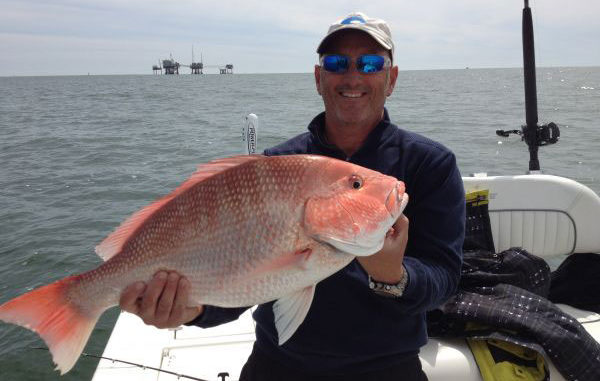
Scheduled 40-day season in jeopardy, full council to vote on measure Thursday in Baton Rouge
The Gulf of Mexico Fishery Management Council’s Reef Fish Committee on Tuesday approved an emergency rule setting an 11-day red snapper season in federal waters this summer.
The full council is expected to vote on the emergency rule Thursday, the last day of their three-day April meeting currently being held in Baton Rouge.
Randy Pausina, head of fisheries for the Louisiana Department of Wildlife and Fisheries, was not sure Wednesday afternoon how the potential 11-day season might impact the state’s current weekend-only snapper season, which opened on Feb. 21.
“I don’t know. Nothing’s been done yet, but it probably wouldn’t surprise me if it did alter it some sort of way,” Pausina said. “I don’t think an 11-day season is going to make our (LWF) Commission happy.
“I don’t know what they’re going to want to do. I don’t know if they’ll want to sit tight or change anything. We won’t know until we talk to them, but I can just assume they’re not going to be real excited about this.”
Pausina, long an outspoken critic of federal management of of red snapper in the Gulf, described the potential 11-day season as “comical.”
“An 11 day season? Is this a joke? I can’t even believe it. Honestly, I can’t. I’m in shock. I’m honestly in shock,” Pausina said. “These people are professionals and they sit around, and I don’t mean to insult anybody, but it’s like, wow, how can you go back to your constituents and say, ‘Yeah, I negotiated good for you. I got you 11 days.’
“And then debate over 11 or 14 — what’s the difference? Getting 14 days or 11 days or 17 days isn’t where we need to be. That’s the bottom line. We need 70 days. We need 100 days. We need 150 days.”
The potential for an 11-day season came up after a federal court ruled last month that federal management of snapper in the Gulf of Mexico violated quotas set forth in the Magnuson-Stevens Fishery Conservation and Management Act.
A group of 21 Gulf of Mexico commercial fisherman filed the lawsuit against the U.S. Department of Commerce, the National Oceanic and Atmospheric Administration, the National Marine Fisheries Service and also named the Coastal Conservation Association as a defendant intervenor.
In a 51-page ruling on March 26, U.S. District Judge Barbara J. Rothstein sided with the fishermen, saying among other things, the NMFS in recent years failed to prohibit the retention of fish once the recreational quota had been reached, failed to use the best scientific information available in allowing a shortened fall season in 2013 when Marine Recreational Information Program numbers indicated the quota had been met in June, and effectively reallocated the catch from the commercial to the recreational sector.
“I think at the end of the day, the court said the recreational fishery is not being managed properly with the overages, and something needs to be done, and they kicked it back to the council to take care of,” Pausina said.
It’s not known what effect Rothstein’s ruling will have on the fate of Reef Fish Amendment 28, which would potentially reallocate the distribution of red snapper between the recreational and commercial fishery for the first time since 1990.
At February’s Gulf Council meeting in Houston, members voted 9-6 for Alternative Five of Amendment 28 as their preferred alternative, which states that if the red snapper quota is less than or equal to 9.12 million pounds, the current 51-percent commercial and 49-percent recreational split will be maintained.
However, Alternative Five also specifies that if the red snapper quota is greater than 9.12 million pounds, then 75-percent of the excess of 9.12 million pounds will be allocated to the recreational sector, while the remaining 25-percent of the excess would go to the commercial sector.
The quota for 2014 and 2015 has been set at just more than 11 million pounds.
“Based on some of the conversations you hear and what the judge is ordering, it could affect reallocation,” Pausina said. “What happened was the judge ordered them to put accountability measures in place in the recreational fishery, so that needs to happen before anything can pass. So what they decided to do in committee was put the accountability measures in Amendment 28 — that way everything would be expedited together.”
Pausina said Amendment 28 could still be potentially finalized in May or June.
“They would still have to come back and do big-picture accountability measures, but this would allow the amendment to move forward,” he said.
Prior to the possibility of an 11-day season, the federal red snapper season was scheduled for 40 days, from June 1 through July 11.
If the full council approves the 11-day season Thursday, Pausina said it would still probably begin on June 1.
I don’t think they can change that,” he said. “They just better hope the wind isn’t blowing.”


